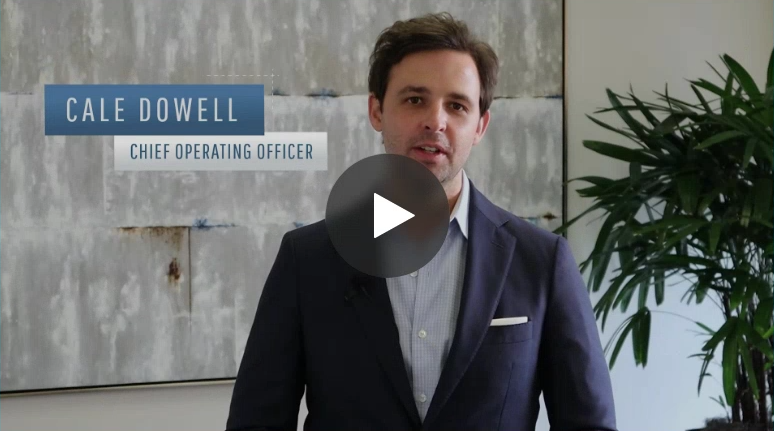Preparing the Next Generation for Their Financial Future
Cale Dowell | September 12 2019
In 1984, a young kid named Daniel moved to California and quickly became the target of a group of bullies that studied karate at the Cobra Kai dojo. Fortunately for Daniel, he befriends an unassuming repairman, Mr. Miyagi, and is transformed into one of my childhood heroes--“The Karate Kid.”
If you’ve never seen the legendary movie, the protagonist is taught karate through the use of seemingly meaningless tasks, such as painting a fence or waxing a car. There’s a pivotal scene where Mr. Miyagi tells Daniel “wax on, wax off”. Daniel comes to the realization that through these boring chores he had been learning the fundamentals of martial arts all along.
Just a few weeks ago I presented to the next generation of our client families. The room held young adults with ages ranging from 18 to 35. The purpose was to teach basic personal finance that was relevant to their unique upbringing.
But here’s the challenge: Learning personal finance is like learning how to do karate.
Many do not learn this in school. It’s not a typical topic of discussion at home. And all you see on TV are extreme examples, typically not relevant and unrealistic.
My first job after university was in Xiamen, China. Let’s just say there were very few Americans living in Xiamen at that time. I stuck out like a sore thumb. Many of my Chinese peers grew up only seeing Americans in the movies. The assumption was that I was rich, famous, Elizabeth Hurley was my girlfriend, I had superpowers and (because I was from Houston) that Yao Ming was my best friend.
These were assumptions that were completely unrealistic, but I came to realize that many of my peers had grown up seeing enough of it on TV that it was the only image they had of who I might be.
Well imagine your son or daughter growing up with Instagram, Facebook, Shark Tank, The Jersey Shore… need I go on? Nearly all day, every day they encounter story after story of overnight millionaires...if you dream up a crazy enough idea, someone will give you millions of dollars for it. That people might pay you to do nothing all day and party all night.
Should you really be surprised that we have a generation with a warped view of money and little to no education on how to manage it?
Here’s the good news: they want to learn.
The next generation is smart, intelligent, and capable. And they are growing up realizing that they’ve been fed false realities for most of their lives.
So, when I walked into that room full of the next generation, it was with confidence I told them it wasn’t going to be their parent’s money management crash course. It can’t be. The world has changed, circumstances have changed, and people have changed.
But the good news is the principles have stayed the same.
And with the help of some timeless lessons from Mr. Miyagi, we jumped into the deep end to teach financial principles that will give them the foundation to empower their future.
Here are just a few topics we covered:
Lifestyle Creep
It doesn’t matter if you make $50k or $50m. Someone always has more. From personal experience, I can say that the desire to “keep up with the Joneses” doesn’t get any easier. If anything, the more money you make, the stronger this temptation becomes. If I’m not careful, that desire will steal my joy and cause friction in my marriage.
So, what’s the antidote? First, its recognizing it exists. Second, it’s having a plan. And when you have a plan, you can enjoy your life: where you are and the journey along the way.
Full Inheritance
There’s a high probability that everyone in attendance that night will (or assumes they will) receive a significant inheritance someday. We tackled it head on by asking this question:
“What kind of inheritance do you hope to leave someday?”
We discussed that an inheritance isn’t just Financial Capital. We outlined that a Full Inheritance consists of 5 capitals:
- Financial Capital
- Relational Capital
- Intellectual Capital
- Character Capital
- Spiritual Capital
And we asked this question: If you must bankrupt one of the capitals, which one would you bankrupt?
The answer was unanimous: Bankrupt the Financial Capital. So I made the suggestion, if that’s how you feel... how are you investing in the other capitals?
Compound Interest
Compounding interest is one of the greatest financial principles for a young person to learn: When you show the power of interest over time, the light bulb turns on and they recognize the importance of starting to invest while they are young. We showcased a tale of two brothers and how their savings differed over their life.
Strategy
Building a plan can be tough. Sometimes we get bogged down with variables. One of my mentors taught me a strategic thinking tool called "There-Here-Path". It’s as simple as this:
Identify where you want to go: That’s the "There".
Be completely honest and transparent with you are right now: That’s the "Here".
Once those two things are identified, the "Path" starts to be illuminated.
Disclaimer: Our intent in providing this material is purely for informational purposes, as of the date hereof, and may be subject to change without notice. This article does not intend to constitute accounting, legal, tax, or other professional advice. Visitors and readers should not act upon the content or information found here without first seeking appropriate advice from a trusted accountant, financial planner, lawyer or other professional.
Join us:






